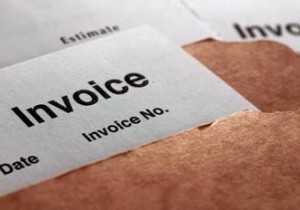
By Finance New Mexico
Accounts receivable represents money a business will get when — and if — the client pays his bill. It’s not money in the bank, but it’s money the business expects to collect within 30 to 60 days.
While waiting, many businesses that are owed large amounts of money — either because of generous or traditionally slow payment policies or foot-dragging clients — can struggle with cash flow shortfalls and be unable to pay their employees and vendors on time.
Some companies deal with this by securing short-term loans or using company credit cards. Others sell their accounts receivable invoices to a third-party “factor” to turn the IOU into working capital.
Putting Cash to Work
The factoring method of asset-based financing is as old as commerce itself. “It’s a very old form of financing,” said Melinda Fricke, regional first vice president working out of Dallas and supporting businesses throughout New Mexico. Factoring is especially popular today with fast-growing companies and businesses that have been around for fewer than three years.
Crestmark Bank serves about 10 New Mexico businesses, Fricke said. Most serve the state’s oil and gas industry, but government contractors and temporary employment companies are also among Crestmark’s clients. Most are referred to Crestmark by traditional banks in New Mexico that don’t offer this service.
The factoring arrangement is relatively straightforward. A company will sell an invoice — or, more typically, several invoices — to the factoring company in return for an advance of 80 to 90 percent of the invoice’s value. When the invoice is paid, the selling company receives the balance — typically minus a commission of 1 to 3 percent retained by the factoring company.
While some companies enter these contracts only when they need working capital for expansion or other one-time projects, most have a revolving relationship with their factoring company, selling accounts every two weeks for routine business needs, such as payroll.
Risks and Rewards
According to Bob Furey, Community Lending Team Leader at US Bank in Albuquerque, factoring companies are very common in eastern states where manufacturers and durable goods businesses are more prevalent than in New Mexico.
“The frustration I have had is that their eligibility requirements are pretty rigid. For example, they don’t do contractors – a big chunk of my customer base [that is] still feeling the pain,” he said.
But for the right type of business, factoring can be a valid – if pricey – source of capital, according to Furey. “Three percent on receivables that turn every 30 days is like a 36 percent APR,” he said about the annual percentage rate.
“But that’s not a strong negative,” he said. “Most factoring companies admit that they are an interim source of funding until the business gets its financial circumstances to the level that they can qualify for less expensive financing.”
For companies accustomed to delayed payments from insurance companies, government agencies or other third parties — among them, auto and home repair companies, medical clinics and other business-to-business industries — factoring frees up capital for immediate business needs and allows the business owner to focus on operations rather than collecting unpaid bills.
Download 301_Businesses Turn Accounts Receivable Into Quick Cash PDF

Over the years Colorado Factoring Company for Business has built relationships with over 40,000 companies nationwide. These relationships have allowed us to learn most of the invoicing roadblocks that keep businesses from getting paid on time.